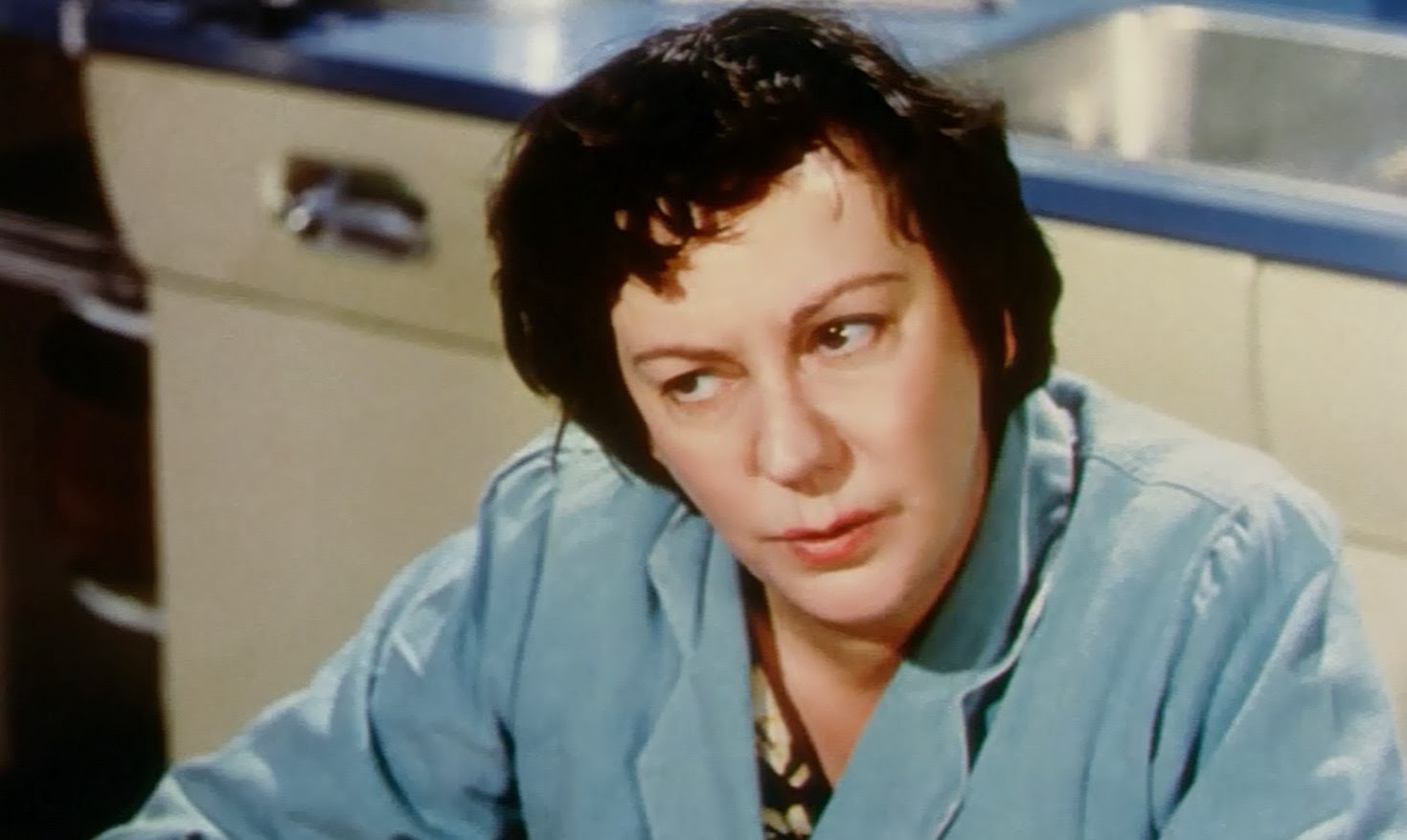Saloon Bar (1940)
A light-hearted murder mystery, Saloon Bar is one the better examples of a genre so popular in 1930s British cinema: an adaptation of a successful stage play (written by Frank Harvey Jnr). It follows the efforts of a group of regulars at a London pub as they try to discover the truth about their friend Will Graves (Alec Clunes) ...
 |
| Alec Clunes & Elizabeth Allen |
... who is due to hang the next day for the murder of his landlady Mrs Truscott (Annie Edmonds):
 |
| Annie Esmond |
The regulars, led by cycling-obsessed bookmaker Joe Harris (Gordon Harker) ...
 |
| Gordon Harker |
... Wickers (Mervyn Johns) ...
 |
| Mervyn Johns |
... a blind beggar named Jim (Gordon James) ...
 |
| Gordon James |
... and theatre worker Sally (Joyce Barbour) who has to rush back to the theatre every few minutes to make sure her dancers - who she refers to as her "forty naughties" - get changed ready for the next act ...
 |
| Joyce Barbour |
... join forces with the bar staff, including Ivy (Anna Konstam) ...
 |
| Anna Konstam |
... and Fred (Al Millen) ...
 |
| Al Millen |
... to assist Queenie (Elizabeth Allen) ...
 |
| Elizabeth Allen |
... in her quest to prove her fiancée's innocence. If you've read this blog before, you know I'm not going to spoil the ending for you!
Here's who else they encounter along the way:
 |
| Aubrey Dexter |
 |
| Felix Aylmer |
 |
| Helena Pickard |
 |
| Norman Pierce |
 |
| Judy Campbell |
 |
| Manning Whiley |
 |
| Torin Thatcher |
 |
| Richard Norris |
 |
| Laurence Kitchin & Mavis Villiers |
... and a very young Roddy MacDowall, already in his 14th screen appearance:
 |
| Roddy MacDowall |
Harker’s character is a curious man: a bookmaker who,
unlike most cinematic bookmakers, appears to be an honest man. He is also warm,
funny and rather eccentric – making constant references to his love of
competitive cycling and how it hardened his calves:
If the film had been made a
few years later, Alastair Sim would almost certainly have been given the role.
The film includes a number of actors and actresses whose
relatives are now well-known:
Alec Clunes – primarily known as a stage actor with a strong
reputation for appearances in Shakespearean roles, Clunes was the father the
actor Martin Clunes.
Gordon Harker – Was the great-uncle of the actresses
Susannah and Caroline Harker.
Judy Campbell – Campbell was an actress whose legacy is
perhaps better known than her acting career. Whilst her latter years included
appearances in popular TV shows such as Casualty, The Bill and The House of
Elliott, Campbell, who died in 2004, was the mother of Jane Birkin and, as
such, Charlotte Gainsbourg’s grandmother and Serge Gainsbourg’s mother-in-law.
Campbell was also a writer, credited with the screenplay of the 1948 adaptation
of Jane Austin’s Emma.
According to one reviewer on the Internet Movie Database:
“This is probably the greatest film, set entirely inside a pub, ever made
(admittedly a small field).” To be accurate, it isn’t set entirely within the
pub (there are a handful of street scenes and a visit to a nearby pub) but the
majority of the action takes place within the bar. In many ways, the bar itself
is the star of the film. The set was dressed with fittings taken from a number
of London pubs that had been bombed in 1940. This helps to give a genuine
understanding of the look of pubs of the period. In particular it is useful to
contrast the saloon bar of the title with ‘The Shakespeare’ a nearby rival pub:
Next time you complain about how the interiors of so many lovely old London
pubs have been destroyed by modern owners, think of ‘The Shakespeare’ – it’s
clear that the modernisation/vandalism of pubs isn’t a new thing.
With its stark
white walls, modern bar and white fittings, it is in sharp contrast to the homely warmth Saloon
Bar:
 |
| The Shakespeare |
 |
| The Saloon Bar of the title |
The filmmakers use this to contrast the characters: one set of staff
and customers are warm and friendly, the other (as characterised by Doris the
barmaid - played by Judy Campbell – a part-time prostitute who is described as
having “more than one umbrella in her hatstand”) ...
 |
| Judy Campbell |
... is cold and austere, just like
the pub’s fixtures and fittings.
It's good to see Saloon Bar re-available after so many years out in the wilderness ....
This original trade advertisement is currently available from film memorabilia dealer Greg Edwards:






































































